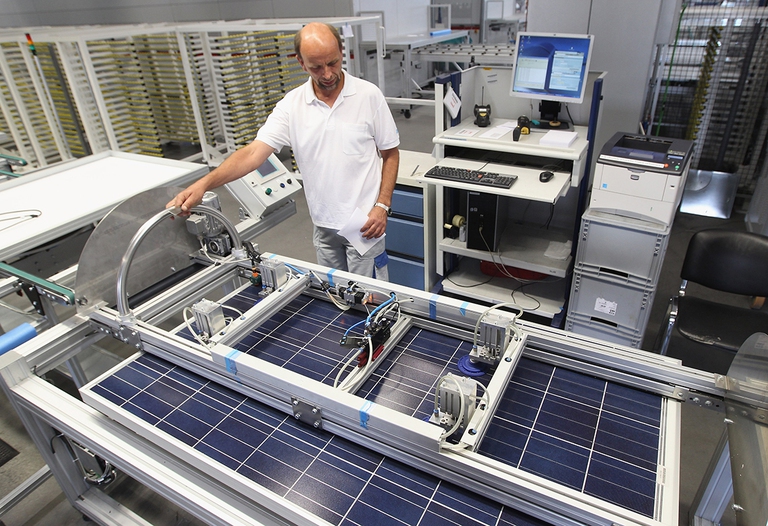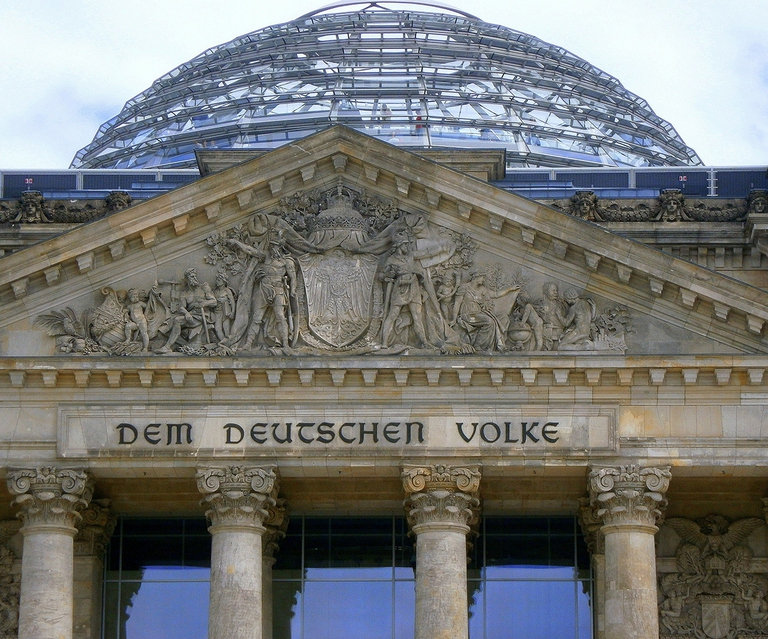
A group of experts in Tokyo suggested pouring radioactive water from Fukushima into the open sea. A marine biochemist explains the consequences of this absurd decision.
In contrast to British plans to build an expensive nuclear power plant, Germany’s nuclear power phase out is happening thanks to renewables and innovation.
Hinkley Point in western England will be the first nuclear power plant to be built in Europe since the meltdown of Japan’s Fukushima reactor in 2011. Whilst the British government sees nuclear energy as a safe and reliable power source, Germany’s nuclear power phase out is moving energy policy in the opposite direction.
After Fukushima, German Chancellor Angela Merkel pledged to switch off all nuclear power by 2022 and fill the gap with renewables. The push for green energy has its roots in the anti-nuclear protests of the 1980s and currently 26% of Germany’s electricity comes from wind, solar and other renewable sources such as biomass, although 44% continues to be produced from coal.
The country’s government wants to increase the share of renewables in electricity to 40-45% by 2025, as reported by The Guardian. No other country of Germany’s size has attempted such a radical shift in its power supply in such a short space of time, with an estimated cost of 1 trillion euros over the next two decades. Described by Merkel as a Herculean task, the transition is Germany’s most ambitious economic project since the one that followed the fall of the Berlin Wall – known as die Wende – and for this reason the energy tranformation is known as energiewende.
The energy transition is, however, not uncontroversial, not least due to the rising cost of subsidies paid by ordinary bill payers, which has triggered complaints that poor households are subsidising affluent people to put solar panels on their roofs.
Yet the transition is supported by Germany’s main business lobby, the BDI, despite lingering concerns about what the transition means for the country’s manufacturing base at a time when confidence in the Made in Germany brand has been damaged by the Volkswagen scandal.
One of the principle companies caught in the transition is Trimet Aluminium, one of the nation’s largest energy consumers, utilising 1% of Germany’s electricity every year. The business operates 270 furnaces that run 24 hours a day, seven days a week, with peak temperatures of 960°C and an annual electricity bill of 120 million euros.
Along with another 2,000 energy-intensive companies, Trimet is spared the renewable energy levy, a contentious exemption that limits its energy costs at a time when ordinary consumers face rising bills. However, the company isn’t immune to the Chancellor’s shift in energy paradigm: “We see the energiewende as an opportunity, but we basically have to reinvent our processes,” said Trimet’s head of operations Andreas Lützerath. At its plant in Essen, northwestern Germany, Trimet is experimenting with using its molten metal furnaces as a virtual battery. If the project is successful, the factory could store 3,360 megawatt-hours of energy over two days, enough to power 300,000 homes for a day.
Notwithstanding challenges, Germany’s dash for renewables has helped create new industries. About 370,000 Germans work in renewable energy industries, twice the number who work in fossil fuel ones according to the Heinrich Böll Foundation, an environmental thinktank.
Siamo anche su WhatsApp. Segui il canale ufficiale LifeGate per restare aggiornata, aggiornato sulle ultime notizie e sulle nostre attività.
![]()
Quest'opera è distribuita con Licenza Creative Commons Attribuzione - Non commerciale - Non opere derivate 4.0 Internazionale.
A group of experts in Tokyo suggested pouring radioactive water from Fukushima into the open sea. A marine biochemist explains the consequences of this absurd decision.
A federal court in Washington, D.C. has struck down the Dakota Access Pipeline, following years of campaigning by the Standing Rock Sioux tribe.
The Scottish island of Eigg is self-sufficient for its energy needs, relying almost entirely on renewable sources, especially thanks to a coordinated community effort.
President Magufuli in unmovable in going ahead with the Stiegler’s Gorge dam despite conservationists’ warnings of the damage it will cause the Selous Game Reserve’s ecosystem and wildlife.
A large dam along the Luangwa River in Zambia would have posed a serious risk to local people and wildlife, leading hundreds of thousands to oppose it. A call to which the government responded by halting plans to build it.
The first one megawatt solar power plant in the Chernobyl exclusion zone has become operational. This is the first step in a renewable energy development project promoted by the Ukrainian government in the area.
A tanker exploded at a gas and petrol station in Nigeria’s Nasarawa state on the 10th of September, killing 35 people and leaving some burned beyond recognition; 3 citizens had several spine and brain injuries, 2 of them are still on Intesive Care Units. Fela Habila , a local singer, is now stable and out of danger but
The largest tidal power plant in the world will be built in the Larantuka Straits. It will serve 100,000 people and help overcome some of the challenges of energy provision in Indonesia.
Robben Island’s solar energy micro-grid project will produce almost one million kilowatt hours of electricity annually, significantly reducing the cost and impact of buying diesel.









